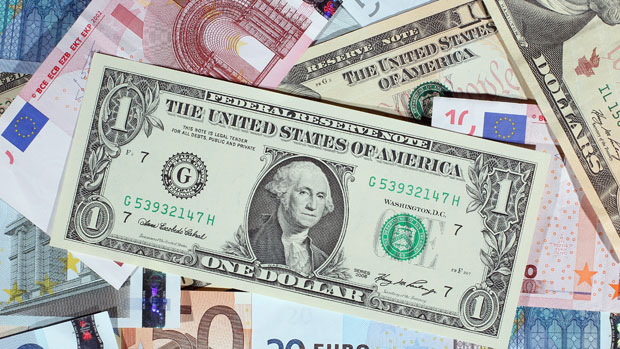Cash machines dole out money after cyber attacks
Hackers grab millions of pounds after reprogramming ATMs around the world, claims FBI

A free daily email with the biggest news stories of the day – and the best features from TheWeek.com
You are now subscribed
Your newsletter sign-up was successful
Cash machines across the world have handed out millions of pounds to criminals in "jackpotting" operations, according to the FBI.
A cyber gang broke into bank computing systems in Taiwan and Thailand over the summer, with police in Taipei called out on 10 July to reports of ATMs spitting out banknotes.
By the following day, criminals had collected more than $2.6m (£2.09m) without using bank cards.
The Week
Escape your echo chamber. Get the facts behind the news, plus analysis from multiple perspectives.

Sign up for The Week's Free Newsletters
From our morning news briefing to a weekly Good News Newsletter, get the best of The Week delivered directly to your inbox.
From our morning news briefing to a weekly Good News Newsletter, get the best of The Week delivered directly to your inbox.
"Gang members stood in front of the machines at the appointed hour and collected millions of dollars," says the Wall Street Journal.
Thailand's Government Savings Bank was hit in a similar attack the following month.
Investigators believe hackers broke into computers at the London office of Taiwan's First Commercial bank in May and sent a malicious software update to its cash machines, causing them to empty their cash-carrying cassettes weeks later.
An FBI bulletin has linked the computer program to a Russian gang known as Buhtrap, which it says honed its technique on banks in its homeland before expanding to other countries.
A free daily email with the biggest news stories of the day – and the best features from TheWeek.com
However, a new report by cyber security firm Group-IB now suggests the incidents in Asia are connected to similar jackpotting heists in Europe, including on cashpoints in the UK.
It says the attacks were carried out by a group dubbed Cobalt, which has links to Buhtrap.
"The recent heists in Europe and Asia were run from central, remote command centres, enabling criminals to target large numbers of machines in 'smash and grab' operations," reports Reuters.
The ATM Security Association has declined to comment on Group-IB's findings.
-
 Epstein files topple law CEO, roil UK government
Epstein files topple law CEO, roil UK governmentSpeed Read Peter Mandelson, Britain’s former ambassador to the US, is caught up in the scandal
-
 Iran and US prepare to meet after skirmishes
Iran and US prepare to meet after skirmishesSpeed Read The incident comes amid heightened tensions in the Middle East
-
 Israel retrieves final hostage’s body from Gaza
Israel retrieves final hostage’s body from GazaSpeed Read The 24-year-old police officer was killed during the initial Hamas attack
-
 China’s Xi targets top general in growing purge
China’s Xi targets top general in growing purgeSpeed Read Zhang Youxia is being investigated over ‘grave violations’ of the law
-
 Panama and Canada are negotiating over a crucial copper mine
Panama and Canada are negotiating over a crucial copper mineIn the Spotlight Panama is set to make a final decision on the mine this summer
-
 Why Greenland’s natural resources are nearly impossible to mine
Why Greenland’s natural resources are nearly impossible to mineThe Explainer The country’s natural landscape makes the task extremely difficult
-
 Iran cuts internet as protests escalate
Iran cuts internet as protests escalateSpeed Reada Government buildings across the country have been set on fire
-
 US nabs ‘shadow’ tanker claimed by Russia
US nabs ‘shadow’ tanker claimed by RussiaSpeed Read The ship was one of two vessels seized by the US military


